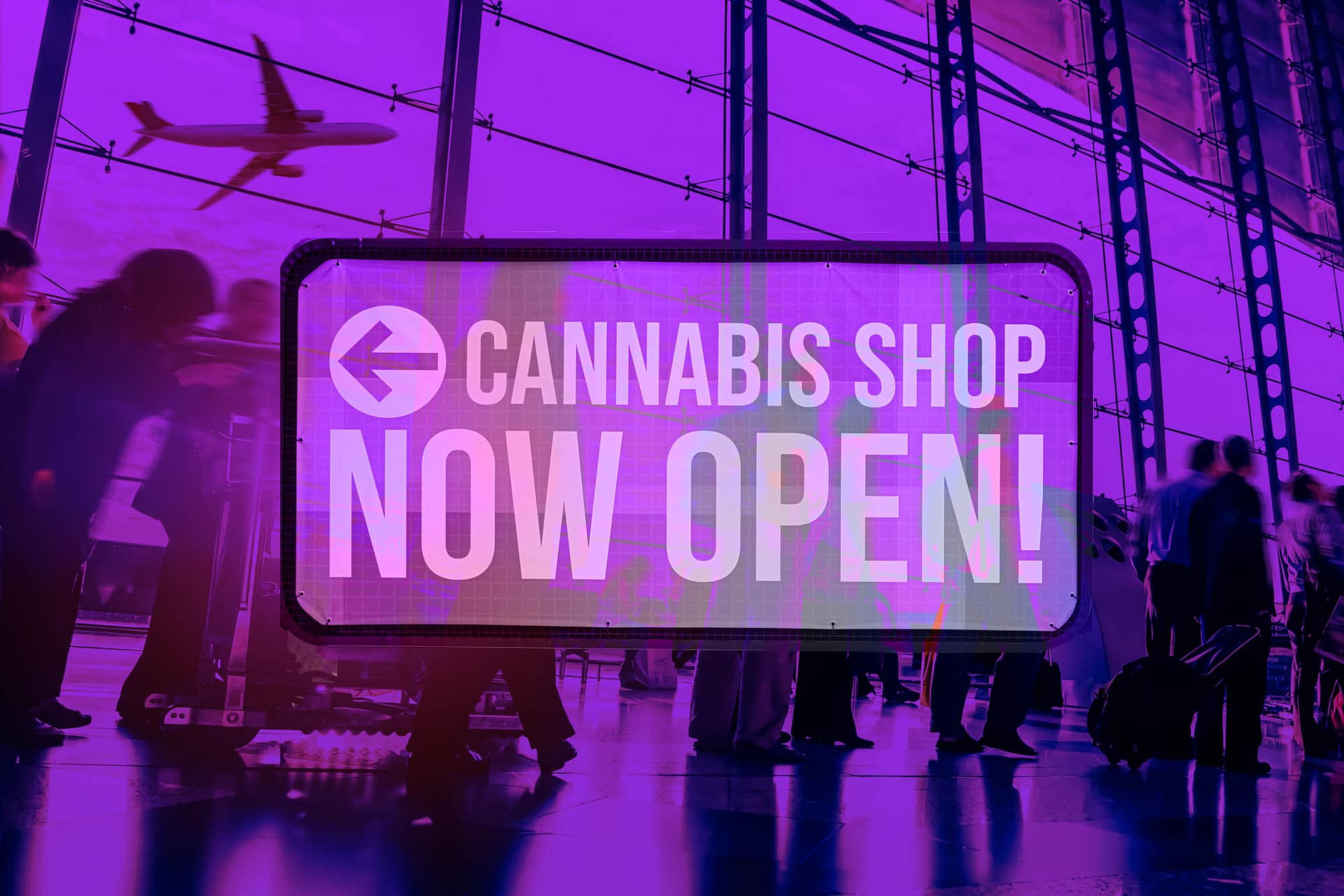In Canada, it’s legal to travel with up to 30 grams of dried cannabis, or the equivalent. While you wouldn’t want to take this with you across international borders, interprovincial borders are entirely open. With more than 90,000,000 domestic air passengers in Canada (pre-COVID-19), airports remain an untapped market for cannabis retailers.
Yet, there are no weed shops in any Canadian airport. But is this about to change? In early January 2022, Canada’s first-ever retail location within an airport was pitched in Prince George. Could this become a greater opportunity for other retailers across the country?
About Copilot, Canada’s First Proposed Airport Cannabis Store
In early 2022, co-founders Owen Ritz and Reed Horton submitted a license application for Copilot. This is a proposed cannabis storefront in the Prince George Authority Airport (YXS). According to a recent CTV report, the duo has worked closely with provincial and federal legislators to move through the licensing hurdles for a summer 2022 opening.
As per Copilot, Canadians already travel with cannabis. One in four Canadians have admitted to already taking a little green with them as they fly across the country. So why not make that a more convenient experience by operating within the airport itself? As the co-founders state, “We aim to offer customers a retail experience that fulfills our mission of making travel (and purchasing cannabis) a less stressful and more enjoyable experience.”
Although the local RCMP has voiced some concerns over the sale of cannabis within an airport terminal, other regulatory bodies have already expressed their support — including the Liquor and Cannabis Regulation Branch, who “determined that the applicant is fit and proper for the purposes of the act.”
While Copilot awaits licensing approval, their proposed airport-based location is raising a lot of excitement among other retailers across the country. So are airports the next big space for pot shops?
Why Airports Make Sense for Cannabis Retailers
-
Designated Cannabis Smoke Zones
When Canada legalized adult-use cannabis in 2018, many of its airports updated their policies to be in line with these changes. For example, Vancouver (YVR) created cannabis-friendly smoking and vaping zones. The YVR website states, “Smoking and vaping of cannabis is permitted on airport property in designated areas only—outside the terminal building in clearly marked areas.”
-
No Different Than Tobacco and Liquor Products
Airports have always hosted shops and restaurants selling and serving alcohol. Like cannabis, both are highly regulated adult-use products. With limits on how much (if any) you can bring with you over interprovincial and international borders.
RCMP have raised potential concerns about the intoxicating nature of cannabis, especially in regards to interactions with airport staff. But this may be a moot point. In comparison with alcohol, cannabis is far less risky in terms of behaviours.
As per the World Health Organization, “Alcohol consumption is associated with aggressive behavior more closely than the use of any other psychotropic substance.”
On the other hand, research has determined that “cannabis diminishes aggressive feelings in heavy alcohol and regular cannabis users, respectively.” In reality, cannabis may be of much less concern in this regard than other substances already sold at airports.
-
The Market Potential is Massive
According to Statista, in 2016, duty-free sales of alcohol and tobacco products at airports were over $85 million and $42 million, respectively. Although duty-free falls within international terminals, there is likely a related opportunity for cannabis within domestic terminals.
At the Toronto Pearson Airport alone, there were 1,177,998 domestic passengers in 2020, while Calgary International hosted 4,339426 domestic passengers in the same year. Considering upwards of 25 percent of Canadians now report consuming cannabis in the last year (2021), the market potential of airport retail becomes immediately clear.
-
Reducing Traveler Stress
Copilot indicates they want to tap into cannabis’ stress-relieving characteristics as the main selling point for their proposed Prince George location. Traveling, and especially flying, can be a stressful experience. By some estimates, upwards of one in four people are afraid to fly.
A 2018 study published out of Washington State University reported among medical cannabis consumers, 58 percent reported a reduction in anxiety and stress. So having the opportunity to light up before a flight could help a certain demographic chill out before takeoff.
The Future of Cannabis at Canadian Airports
Cannabis may be legal in Canada, but there are no cannabis retail locations yet at any Canadian airports. Millions of Canadians are now avid cannabis lovers. Yet, airports remain among the last places where we can’t find legal weed. As a result, domestic terminals represent an untested but possibly lucrative market for retailers.
As Copilot’s application goes through several rounds of regulatory approval, many other cannabis entrepreneurs will be taking notes. So stay tuned for updates in 2022.
Want to Make Cannabis Retail Easier?
Tech POS is a fully compliant, all-in-one ecosystem for cannabis sales in Canada and beyond. Our fully integrated line of products, including POS, e-commerce, and digital signage, make store operations a simple process.
Connect with us for a free demo today!





